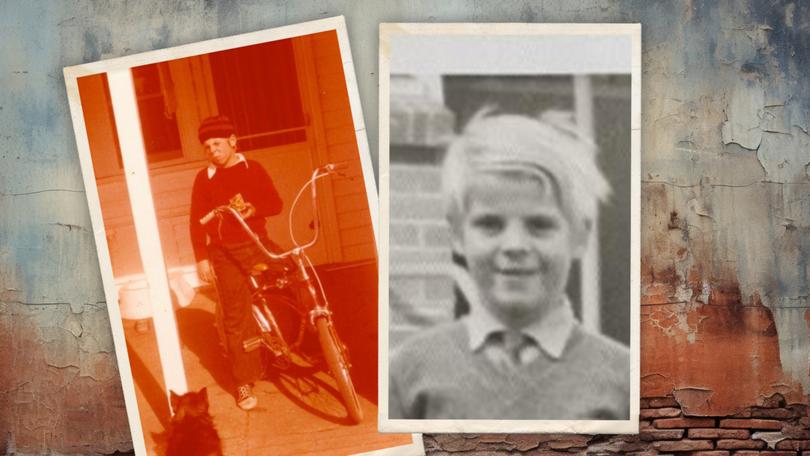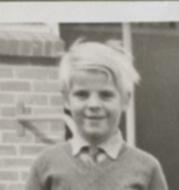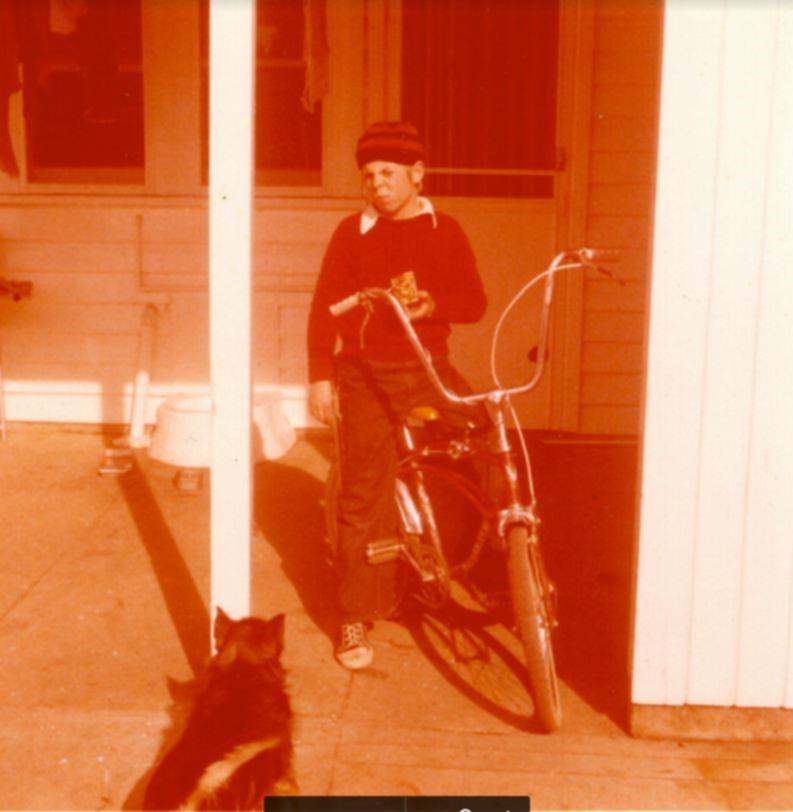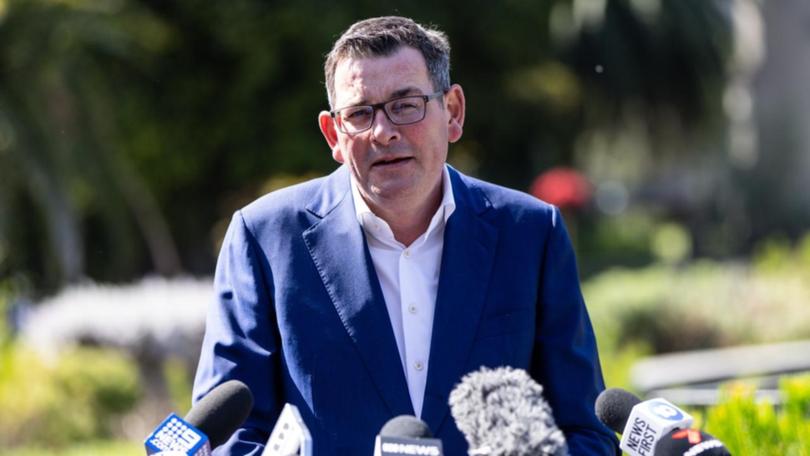Abuse survivor’s long journey to justice and compensation from the Victorian Government
The Victorian Government has been vocal in its support of sexual abuse victims, but Butch found nothing but hurdles put in his way when he sought compensation.

When Butch, a pseudonym, first approached the Victorian Government seeking compensation for historic sexual abuse he suffered at the hands of a prisoner in the 1970s, he was hopeful.
He had kept what Robert Curtis did to him when he was a 10-year-old boy inside the old Beechworth Prison in far north-west Victoria a secret for decades, shame burning inside him as he struggled to live a normal life.
But the trauma stalked Butch like a shadow and eventually overwhelmed him, forcing him to leave his high-paying job as an air traffic controller after a long career with the Royal Australian Air Force.
Sign up to The Nightly's newsletters.
Get the first look at the digital newspaper, curated daily stories and breaking headlines delivered to your inbox.
By continuing you agree to our Terms and Privacy Policy.His mental collapse followed a life marred by anger and alcohol.
But then a chance meeting with a child abuse advocate made Butch start to think about telling his story and seeking damages.
It seemed like the right time. The nation was finally acknowledging what happened to him and other survivors of institutional abuse was wrong.
The Victorian Government had in 2015 abolished a time limit on civil claims brought by victims of institutional abuse, allowing survivors to come forward after decades of suffering in silence.

Then the Commonwealth Government held a landmark royal commission into institutional responses into childhood sexual abuse that, after hearing thousands of victim accounts, found in 2017 that many children had been failed.
“We cannot avoid the conclusion that the problems faced by many people who have been abused are the responsibility of our entire society,” the final report said.
And in 2020 then Victorian premier Daniel Andrews declared that he believed all victims after Cardinal George Pell was acquitted of charges of historic sex abuse.
“I make no comment about today’s High Court decision,” Mr Andrews wrote on social media.
“But I have a message for every single victim and survivor of child sex abuse: I see you. I hear you. I believe you.”
About 17,000 people liked the tweet while more than 4000 shared it.
Child sex abuse survivors, one of the nation’s most vulnerable groups of people, believed Mr Andrews.
The thing is, it wasn’t true.
Butch thought his case was fairly straightforward.

The Victorian Government had failed when it allowed him as a 10-year-old to roam the grounds of the prison with Curtis, a prisoner who had prior convictions for the indecent assault of children, obscene exposure and buggery.
At the time, Butch’s father was employed as a prison guard at the prison, now known as the Old Beechworth Gaol, and his family lived in quarters adjacent to the granite institution.
A fellow prisoner alerted authorities to the abuse and in 1974 in Wangaratta, Curtis was convicted of indecently assaulting Butch and a friend.
Court records detail Judge Trevor Rapke’s disbelief that a man with a prior conviction for indecently assaulting two boys under the age of 16 was allowed to spend time with the youngsters.
The other boy would later take his own life. Butch has alleged that the abuse went even further than he disclosed to authorities at the time.
After the abuse was uncovered, Butch’s father lost his job at the prison and the family fell into financial ruin.
Now an adult, Butch decided to seek millions in compensation from the Victorian Government, which had repeatedly declared its support for survivors of abuse.

At the end of March, Butch, exhausted and battered, accepted the fourth settlement offer made by the Victorian Government Solicitor’s Office after three years of brutal negotiations.
“In my case, there was nothing to admit because there was a guilty verdict in 1974,” he says.
“To me, it was ridiculous to deny the case because it wasn’t a case of proving anything.
“They were saying it (abuse) never happened up until that point and not accepting any liability.”
Michael Advocate, himself a survivor of child sex abuse who uses a pseudonym, has been supporting Butch throughout his compensation claim.
He went in wide-eyed but says watching the vicious and brutal treatment of Butch has stripped him of any idealism.
“(It) has been decimated, smashed and destroyed,” he said.
“Talk about a loss of idealism and innocence. It’s been brutal.”
Lawyer Judy Courtin said institutions, whether the Catholic Church or the Victorian Government, had continued treating abuse victims the same as commercial plaintiffs after the royal commission.
“Through the royal commission, particularly non-government institutions like the Catholic Church and others, went on record saying we will be model litigants, we will be victim-focused, we will be compassionate,” she said.
“In stark contrast to that what we find is that institutions mostly, and this includes the State of Victoria, they’re not model litigants.
“Many of them treat these matters as more of a commercial matter.
“They’re (the victims) not being treated as traumatised victims of historical sexual assault.”
The Victorian Government’s own definition of a model litigant says the State carries an obligation to act fairly and consistently, not cause unnecessary delay, pay legitimate claims without litigation and seek to avoid and limit legal proceedings.
A footnote to the definition says: “The obligation does not prevent the State and its agencies from acting firmly and properly to protect their interests.”
Butch says in his case the Victorian Government spent three years trying to defend the indefensible while Mr Andrews was publicly declaring his support for child abuse victims.
“It was a total contradiction,” he says. “How can you say you are a model litigant and look after victims when you don’t.
“That’s my experience. I never heard anything from them other than denials and then some really poor offers to settle.”
After years of stonewalling, the VGSO first offered Butch $750,000 in August 2023 then $925,000 in December that year. In February this year, they offered him $2 million followed by an offer of $2.1 million.
In March, Butch and the VGSO agreed to a final settlement of $2.5 million plus $210,000 in legal costs.s
He knows he could have potentially won millions more at trial, but says his greatest relief isn’t the money arriving in his account it’s knowing he no longer has to fight Government lawyers.
“I didn’t have to fight anymore, I didn’t have to go through anything anymore,” he says.
“It was all about them admitting liability and saying they’d settle.
“It was important because you had to fight to get that decision, you had to bare your soul and put up with them saying they’re not at fault.”
Ms Courtin said institutions were continuing to drag out a matter as long as possible and often didn’t make an appropriate offer to a victim until the eve of a trial in a bid to force them to settle.
“My view is that these institutions, almost deliberately, cause a whole new round of abuse and trauma on victims or plaintiffs in the claims,” she says.
“It’s just appalling. It needn’t be this way.
“They often know very early on in these claims what they’re worth and why aren’t they settling earlier for the right amount of money?”
Butch says he wouldn’t have been able to last as long as he did if he didn’t have his own financial means and own his own home.
“For people on struggle street, it must be twice as stressful,” he says.
“I was just fortunate to be self-sufficient and I think that’s why I was strong and capable enough to get through it.
“I also think the lawyers and the system preys on that (financial insecurity) to get people to settle early or for less.
“This is what the VGSO did to other victims, but it didn’t work on me.”
The Supreme Court of Victoria has a list dedicated to claims against organisations brought over personal injury or death due to alleged physical or sexual abuse of a minor.
It was established in February 2020 to accommodate the growing number of civil claims brought against institutions after the State government scrapped time limits on compensation claims.
The number of pending cases on the list was 825 as of April 30.
A Victorian Government spokeswoman said she was unable to comment on individual cases due to privacy laws.
“Our thoughts are with all victim-survivors of sexual violence,” she says.
“We acknowledge the profound impacts of sexual violence and the re-traumatising effect for victims in seeking justice.
“We thank all the survivors, their families and advocates who have bravely spoken up and helped us make Victoria a safer place for children.”

